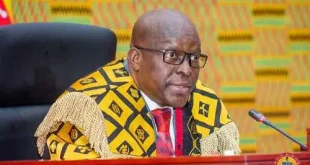
Renowned economist Kwame Pianim recently delivered a comprehensive analysis of Ghana’s economic journey during the fifth Annual UPSA Leadership Lecture Series. Expressing disappointment with successive governments over 66 years of independence, Pianim highlighted the nation’s challenges, citing insufficient microeconomic stability, political volatility, a staggering 90 percent GDP public debt, and an oversized government straining the national finances.
Emphasizing the urgency for major economic reforms, Pianim advocated for a population moderation strategy, aiming to reduce the current 2 percent population growth to 1.1 percent. He set an ambitious target of achieving a ten thousand national GDP by 2057, aligning with the lecture’s theme, “Re-imagining Ghana’s Development Trajectory for a Peaceful and Prosperous Nation by 2057.”
Central to his proposals was the pivotal role of the private sector in fostering national development. Pianim urged active participation of private entities in managing state enterprises, advocating for the government to sell off state-owned banks and hotels. He stressed the importance of government engagement with business owners, listening to their insights rather than dictating terms to foster a robust economy.
Addressing the issue of corruption, Pianim recommended creating incentives for reporting corrupt practices and leveraging digital transformation to minimize opportunities for such activities.
Moreover, he called for the establishment of an Entrepreneurship Development Fund tailored to support young entrepreneurs, underscoring the government’s responsibility in providing a sovereign guarantee for investments to drive economic growth.
The UPSA Leadership Lecture Series, known for hosting distinguished speakers such as former President John Agyekum Kufuor and Asantehene Otumfuo Osei Tutu II, serves as a platform to engage the public and influence policy decisions on critical national issues. Pianim’s thought-provoking insights have placed a spotlight on the imperative need for strategic economic reforms to propel Ghana towards a prosperous future.
 GhArticles.com Every News in Detail
GhArticles.com Every News in Detail



